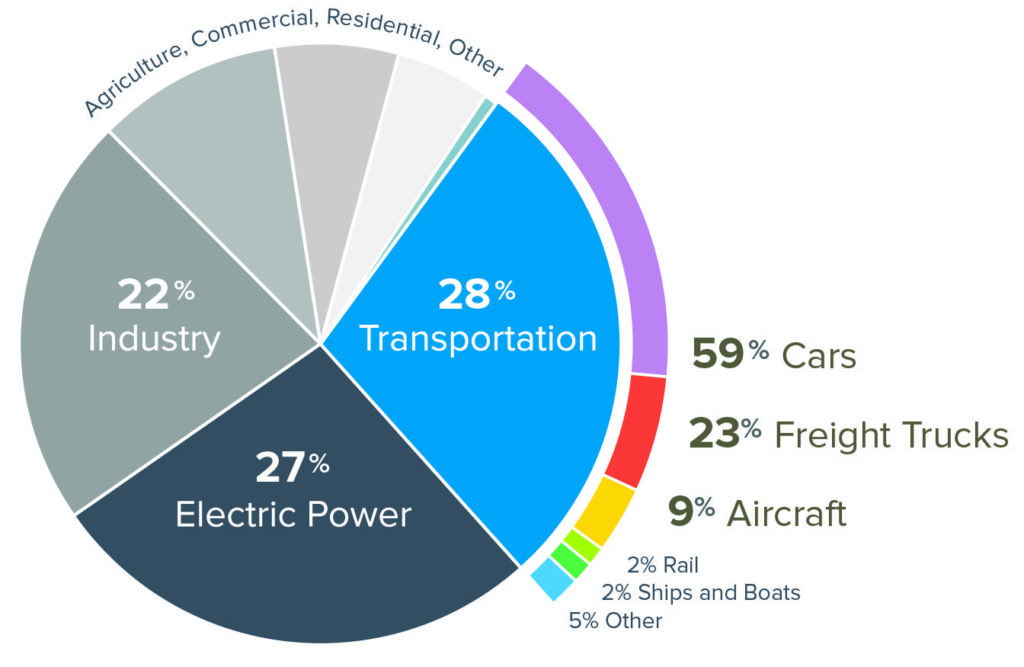Climate Change & Resilience

Climate change presents an urgent, existential threat to our communities, and those who are most vulnerable in our society today are disproportionately affected. Smart growth is one of our best strategies for reducing emissions and enhancing preparedness for future climate impacts.
We believe that climate resilience and adaptation—better preparing for the impacts of climate change such as extreme heat, sea level rise, wildfires, and drought—requires land-use strategies that enhance standards for future development and prioritize supporting communities who are in harm’s way.

Adverse consequences of climate change are already here, and they are not felt evenly. Through technical assistance, research and thought leadership, and advocacy work, SGA seeks to advance policy change to promote development outcomes and land-use strategies that will advance equitable climate adaptation. A particular focus for SGA is supporting underserved communities to advocate for policy changes that reverse racist land-use and transportation practices, many of which compound exposure to climate hazards for low-income communities and communities of color.
The land-use and transportation sectors are amongst the top contributors to greenhouse gas emissions in the U.S., and we deeply believe that we’ll never achieve ambitious emission reduction targets, or create more livable and equitable communities if we don’t provide more affordable housing and find ways to allow people to get around outside of a car.
Some of our notable work on climate change and resilience ››
We recognize that discriminatory planning, land-use, and housing policies have put low-income communities and communities of color at more risk to climate-related health, safety, and wealth-building issues. To support historically underserved communities in combating the impacts of climate change, SGA advocates for policies, investments, and strategies to remove or eliminate carbon emissions while considering the needs of communities that are most severely impacted.
Technical assistance
Through a ‘local/national partnership model,’ SGA partners with communities to create places that are healthy, have strong local businesses that create economic prosperity for everyone, offer transportation with access for all people, and are equipped to respond to the impacts of climate change.
SGA is partnering with community-based organizations across the U.S. to address climate and land use topics. During this year-long, co-created technical assistance, communities will receive support to effectively advocate for housing, zoning, and infrastructure that are more prepared for the impacts of climate change. Several other communities will receive lighter-touch assistance to uplift their efforts to advocate for more sustainable places.
Supported by the Kresge Foundation’s Climate Change, Health, and Equity (CCHE) initiative, SGA has partnered with Partnership for Southern Equity (PSE) on a three-year implementation plan to promote racial equity, with an overarching goal to develop and advance systemic processes that create opportunities for energy equity, health equity, and economic inclusion. Growing a Clean Economy, an outcome from our partnership with CCHE, takes a closer look at the emerging clean jobs sector and other climate and equity topics in southwest Atlanta.
Research and thought leadership
The Equity Summit—SGA’s largest event of the year—is a virtual gathering of thought leaders and practitioners who work to ensure that racial equity is a key priority in any smart growth approach. Climate change has been an important topic in Equity Summit programming, where discussion guides on strategies for moving toward a low-carbon future and planning for equitable climate adaptation provide a way for smart growth advocates to take action in their communities. Additional research highlighting the synergies of smart growth and climate is linked below.
Our Driving Down Emissions report—itself an update of a report we released all the way back in the 2000s—explores how our land-use and transportation decisions contribute to skyrocketing emissions, while also providing a roadmap for reducing these emissions while meeting the demand for housing in locations where people naturally emit less, helping to build a more just and equitable society.
The Great Real Estate Reset is a clarion call for an industry that is failing to keep up with changing demands. It explores how distorted and destabilized housing markets are pushing households and future growth into areas that face significant climate risk.
Our report, The Case for Climate-informed Zoning: A Study of Fiscal Impact in Norfolk, VA, is a research project conducted in partnership with the Lincoln Institute of Land Policy which analyzes the fiscal impacts of climate-informed zoning policy in Norfolk, Virginia—a community already experiencing the damaging impacts of climate change, including flooding.
Advocacy
SGA regularly engages in federal advocacy related to the intersection of climate, land use, and transportation topics, working through our advocacy coalitions and engaging with partner organizations. Our advocacy work seeks to reduce emissions through smart transportation and land-use policy, better align the housing abundance and climate adaptation agendas, and support future development and infrastructure to be more prepared for climate impacts.
SGA submitted comments on the design of the Environmental and Climate Justice Block Grant Program (ECJ Program), funded at $3 Billion under the Inflation Reduction Act, on the types of projects EPA could prioritize, requirements that should be applied to ensure projects are community-driven, and different types of technical assistance that could support the ECJ Program’s eligible applicants.
When the Biden administration took office, we produced a list of steps they should take in the first 100 days to connect transportation, housing, and infrastructure policy and provide Americans with freedom of transportation choice, access to affordable housing, and healthy, resilient communities. Our core message for them: climate change and equity must be addressed together—the best strategies to improve the built environment to address one challenge also address the other.
Learn about our other two organizational priorities
Learn more about Smart Growth America and smart growth
Learn more about our work and how we do itWhat is smart growth?

